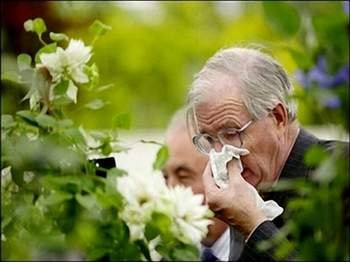Respiratory diseases in the elderly in cold season
Elderly people have all body functions decline, including reduced resistance, so diseases can easily attack, especially diseases caused by microorganisms (viruses, bacteria, fungi). The weakness in self-protection of the elderly becomes more evident when the weather changes, especially in the cold season. The disease that the elderly are susceptible to in the cold season is respiratory disease.
Elderly people have all body functions decline, including reduced resistance, so diseases can easily attack, especially diseases caused by microorganisms (viruses, bacteria, fungi). The weakness in self-protection of the elderly becomes more evident when the weather changes, especially in the cold season. The disease that the elderly are susceptible to in the cold season is respiratory disease.
Respiratory diseases that the elderly often encounter
Rhinopharyngitis is a disease that can occur year-round, but in the cold season it is most common in the elderly, causing sneezing, runny nose, watery nose; sore throat causing cough, chest tightness, and sometimes difficulty breathing.

Illustration photo (Internet source)
Chronic pharyngitis (often called granular pharyngitis), or chronic rhinitis with burning. When the weather changes, it can recur. Elderly people in the cold season often get bronchitis and pneumonia.
One thing to note is that acute bronchitis and pneumonia in the elderly due to cold body temperature often does not increase as much as in young people, so it is easily mistaken for a mild illness that is not given much attention by family members, which can easily lead to serious illness until they are admitted to the hospital when the illness is very serious.
Some people with chronic diseases such as asthma, chronic obstructive pulmonary disease, in the cold season, the disease is very easy to relapse, complications easily appear. The first favorable factor causing the disease must be mentioned is people addicted to smoking cigarettes and tobacco. Cigarettes and tobacco when inhaled into the respiratory tract will damage the lung parenchyma (lung tissue), thereby increasing the risk of secondary infection.
Polluted environment, lots of dust, smoke from coal stoves, wood stoves, oil stoves, cramped, poorly ventilated houses are also favorable factors that make the elderly susceptible to respiratory diseases, especially in the cold season.
Some chronic diseases in the elderly such as high blood pressure, diabetes, and endocrine disorders are also reasons that increase the risk of respiratory infections in the cold season in the elderly.
How to prevent disease?
To prevent respiratory diseases in the elderly in the cold season, it is necessary to wear enough warm clothes, sleep warmly, and avoid drafts. When the temperature changes suddenly from hot to cold or from cold to freezing, the elderly should limit going out in the early morning.
You can still exercise or move around, stay indoors. You should not leave the house when the weather is cold, especially during the monsoon season. You need to clean your throat and mouth regularly every day, such as brushing your teeth regularly before and after waking up; and gargling with saline solution (you can make it yourself).
People who use dentures need to clean them thoroughly to avoid residue and food buildup, which increases the risk of microbial infection in the respiratory tract.
It is necessary to quit smoking cigarettes and tobacco, especially the elderly who have chronic diseases such as sore throat, bronchitis, asthma, sinusitis. In the cold season, the elderly also need to bathe and wash daily or several times a week.
According to Health & Life - NT






